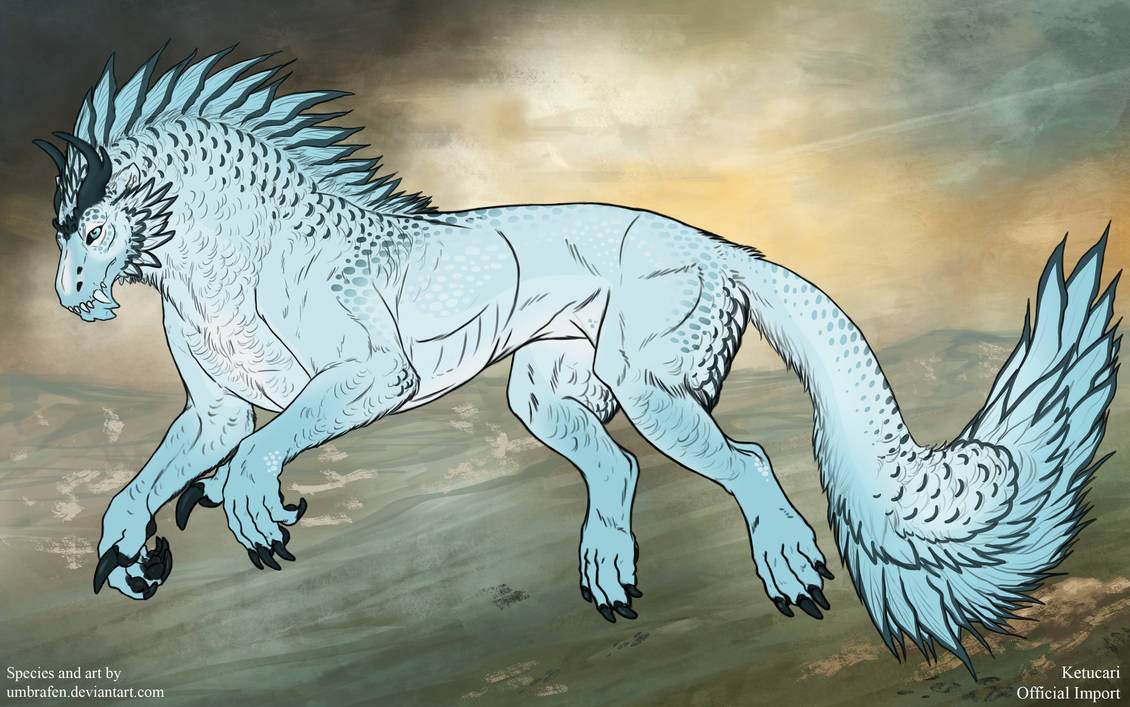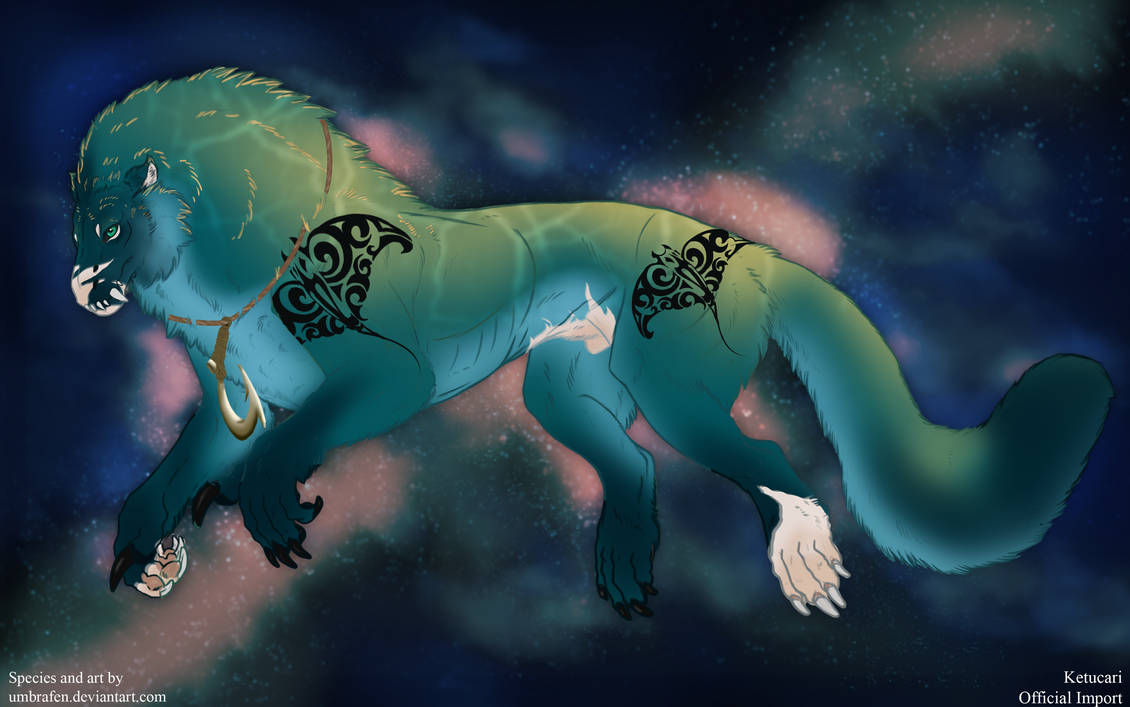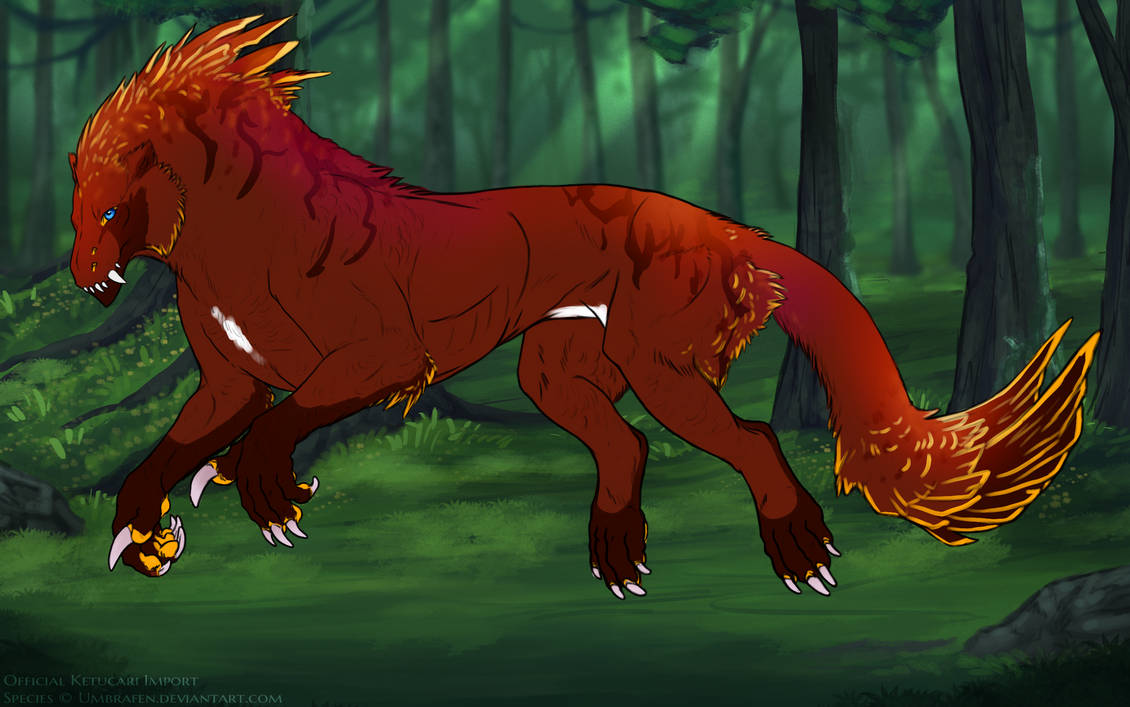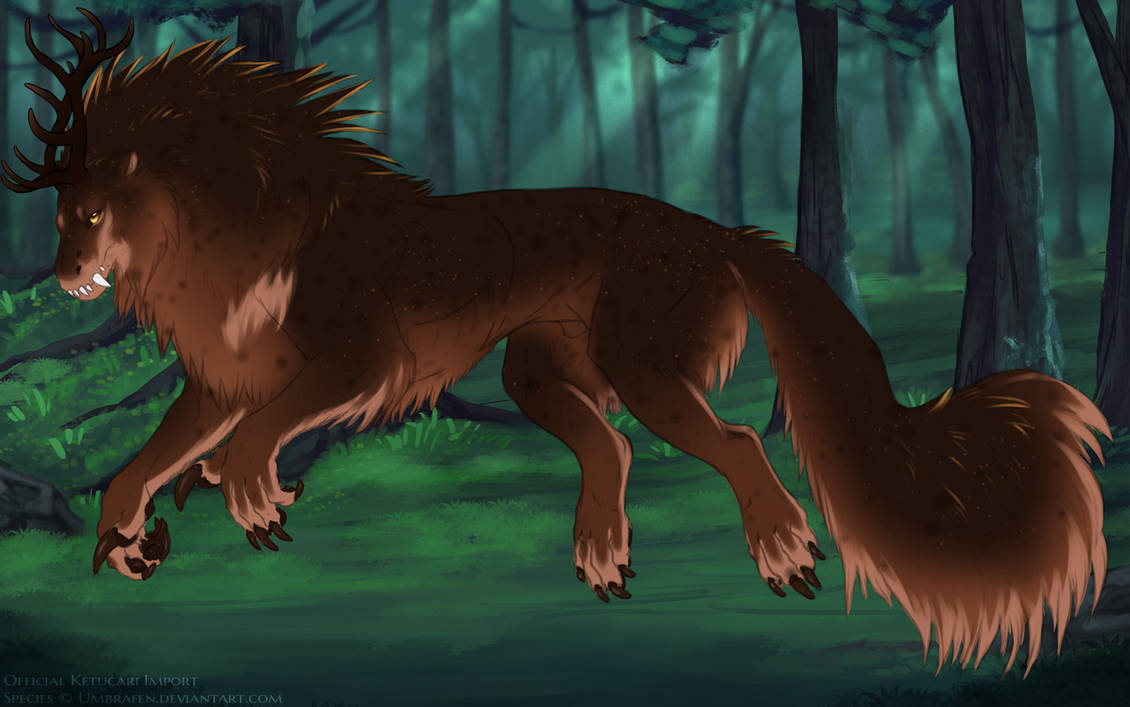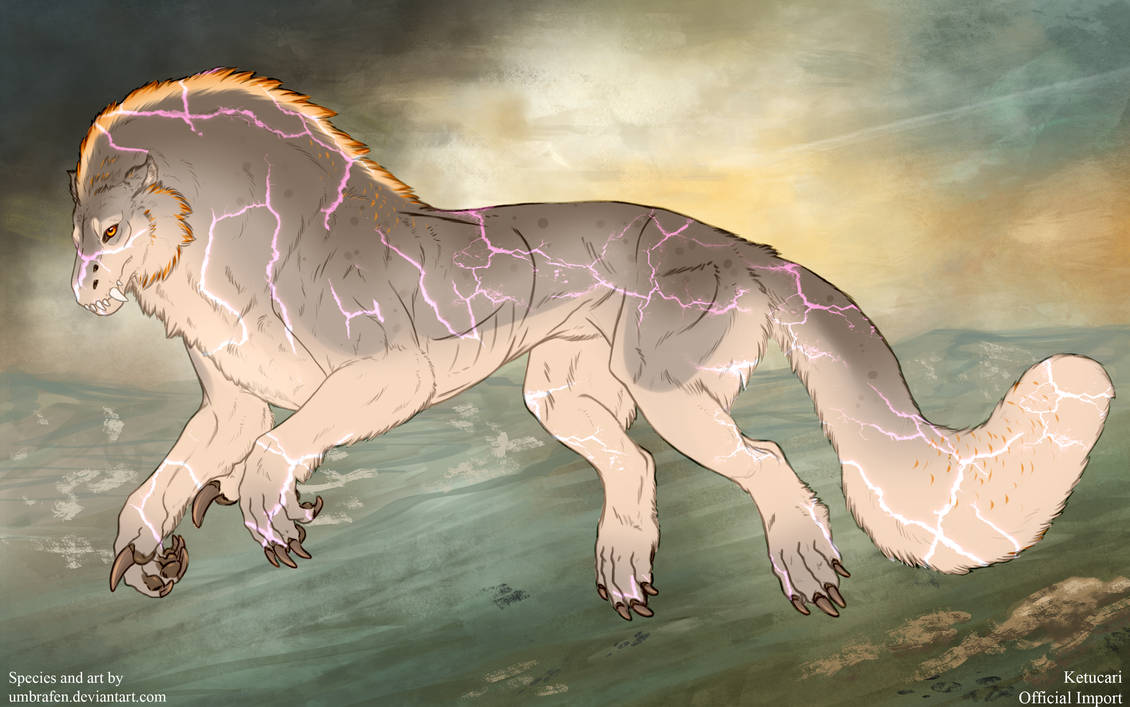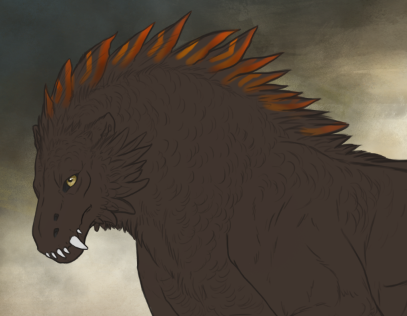Filigree
Examples
Basics
Filigree resembles lacing in chickens. Here are some real life examples:
www.ctbiofarmer.com/images/bar…
www.feathersite.com/Poultry/CG…
s-media-cache-ak0.pinimg.com/5…
www.wyandotte-nation.org/wp-co…
s-media-cache-ak0.pinimg.com/5…
Color
Filigree can be any color, even vibrant colors. You may use up to two colors in filigree.
Range
If the ketucari has the filigree gene, it should be visible somewhere on the body where the lineart denotes feathers, such as the crest, shoulders, and tail tip. Like any other marking, it must be immediately recognizable.
Interaction with Other Markings
![]() All markings can be layered under or over filigree.
All markings can be layered under or over filigree.![]() Filigree can be influenced by radiance.
Filigree can be influenced by radiance.
Accents
Here are some small accents you can add to your designs to make them more unique!
• Filigree may have a subtle gradient like below:
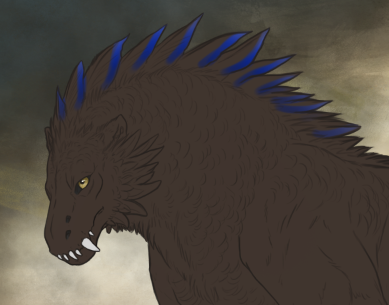
• Filigree may make a double line on the feathers such as the double laced barnevelder. Be careful not to make this resemble scale marks or eye rings.
